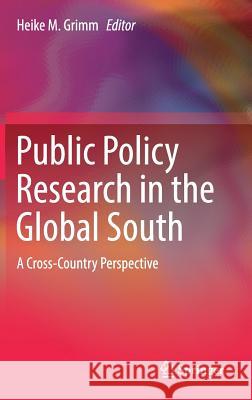Public Policy Research in the Global South: A Cross-Country Perspective » książka
topmenu
Public Policy Research in the Global South: A Cross-Country Perspective
ISBN-13: 9783030060602 / Angielski / Twarda / 2019 / 291 str.
Kategorie BISAC:
Wydawca:
Springer
Język:
Angielski
ISBN-13:
9783030060602
Rok wydania:
2019
Wydanie:
2019
Ilość stron:
291
Waga:
0.60 kg
Wymiary:
23.39 x 15.6 x 1.75
Oprawa:
Twarda
Wolumenów:
01
Dodatkowe informacje:
Wydanie ilustrowane











